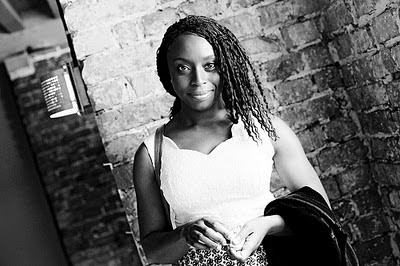Aku-nna (« my father’s wealth » in
igbo language) is a young teenager living a peaceful life in Lagos, the Nigerian
metropolis with her carefree brother Nna-Ndo, her mother Ma Blackie and her
father. The latter who served as a soldier in the British colonial army and came
back from faraway fronts with a recurrent handicap on his leg, is now working
as the head of casting department in the Nigerian railways society. Aku-nna is
a brilliant student whose hope is to make a good marriage to make her father
proud. But soon that loving and caring father died from the deterioration of
his old war wound.
“With our father gone, there will be no more school for me [school is over for me]” thought Aku-nna and she couldn’t be more right.
Buchi Emecheta introduces us step by step
(progressively) to the remains of tradition in the igbo burial ceremony in
Lagos, the solidarity that naturally takes place as well that the hypocrisy
behind some behaviors. Then the author takes us to the countryside where the
Odia family is forced to move, they settle in Ibuza at Okonkwo’s, the eldest
brother of the late Ezechiel Odia.
In that context, with the man very attached to
tradition that is her uncle, the frail and sickly Aku-nna discovers a very
rigid and male chauvinist society. The reference to Okonkwo, the eccentric and also
extremely attached to tradition character from Chinua Achebe’s novel may be
intended. In this novel, Uncle Okonkwo is interested in his own social ascent
within the clan and counts on Aku-nna’s dowry as soon as she’ll start growing
up into a woman. Meanwhile the girl becomes attracted to a young teacher whose
status as a slave descendant makes him a social outcast.
This novel brings back the
questions Chinua Achebe already rose in “Things Fall apart”, i.e the
possibility of questioning some flaws of the traditional igbo culture. The
subject of caste, for instance. The main difference here lies in the fact that
the outside look is not one of an occidental missionary but coming from a young
African girl herself raised in an African city. Unlike Léonora Miano’s
character, Aku-nna does not reject her entire culture. But she disapproves of forced
marriage and the ostracism that leads to Chike’s family being banished from the
society. Buchi Emecheta also analyzes the impact of both magical and religious
beliefs on the subconscious and how they somehow freeze things up so much, even
when there seems to be a tiny bit of freedom for the people
Buchi Emecheta takes us to a journey through
this story of which tone and rhythm are perfectly under control.
Ed. George Braziller



